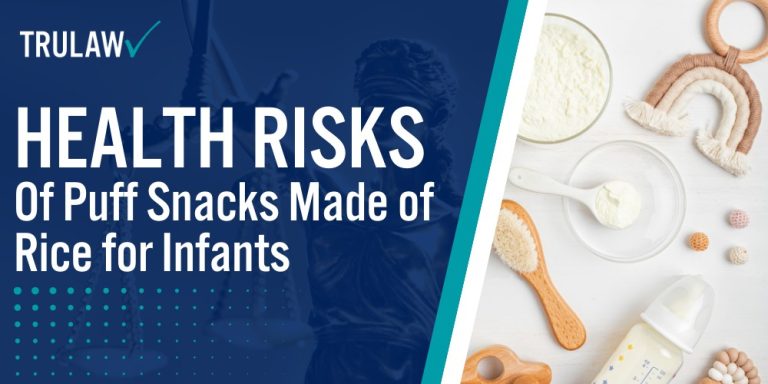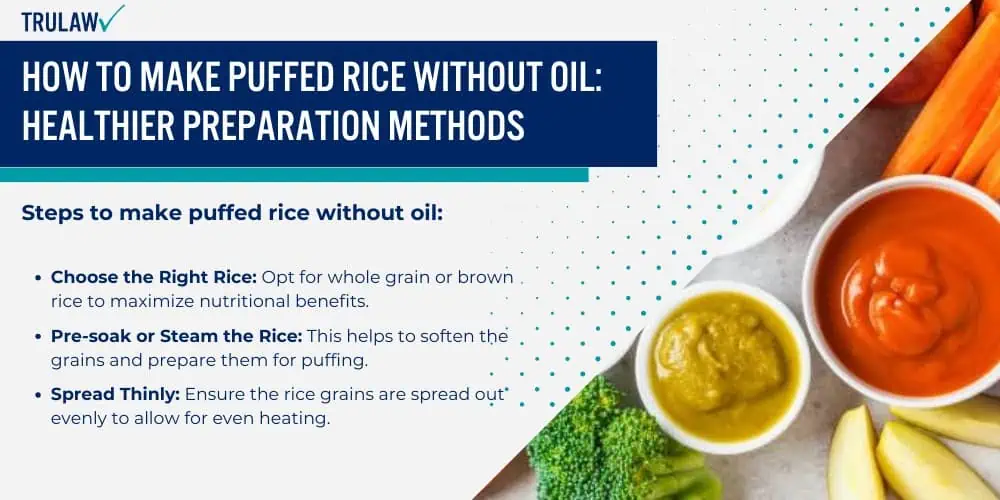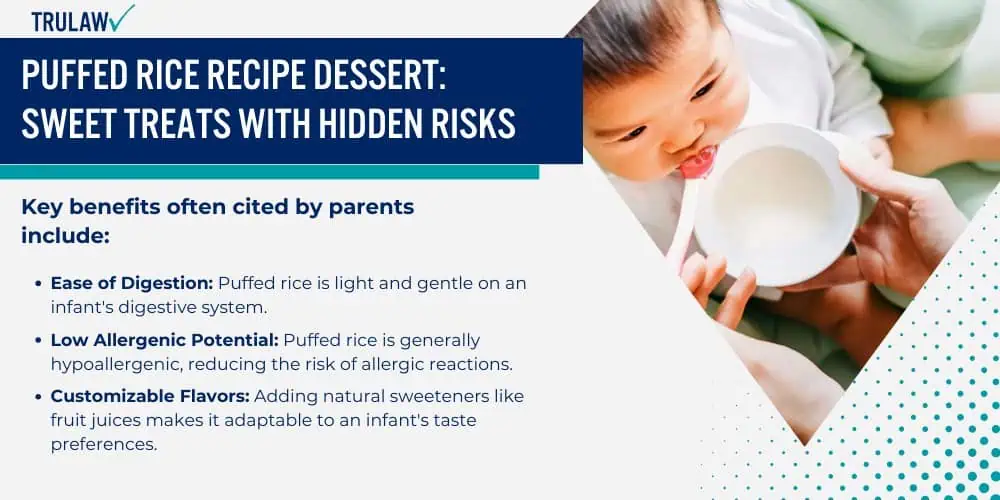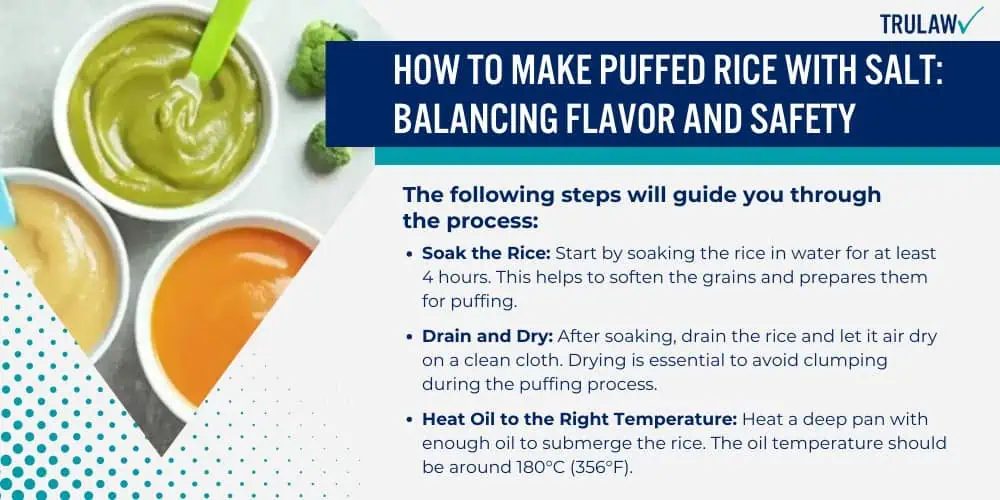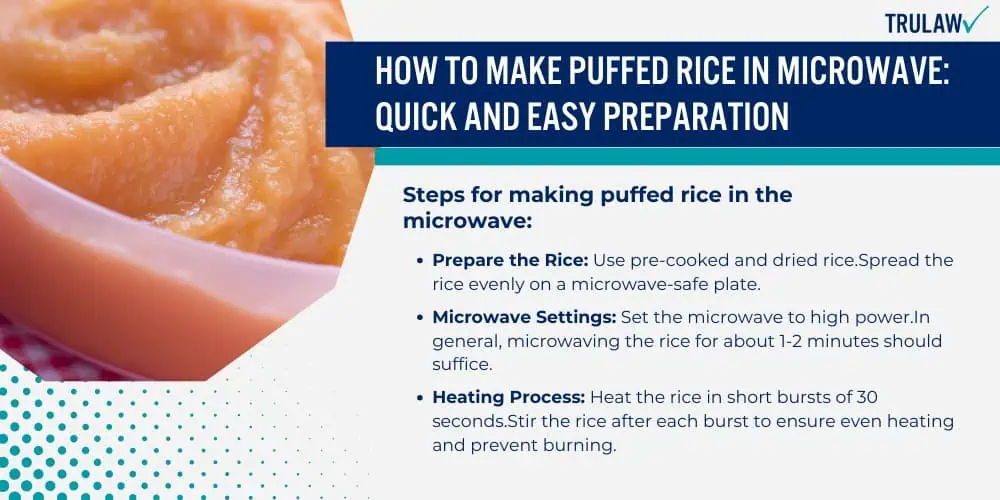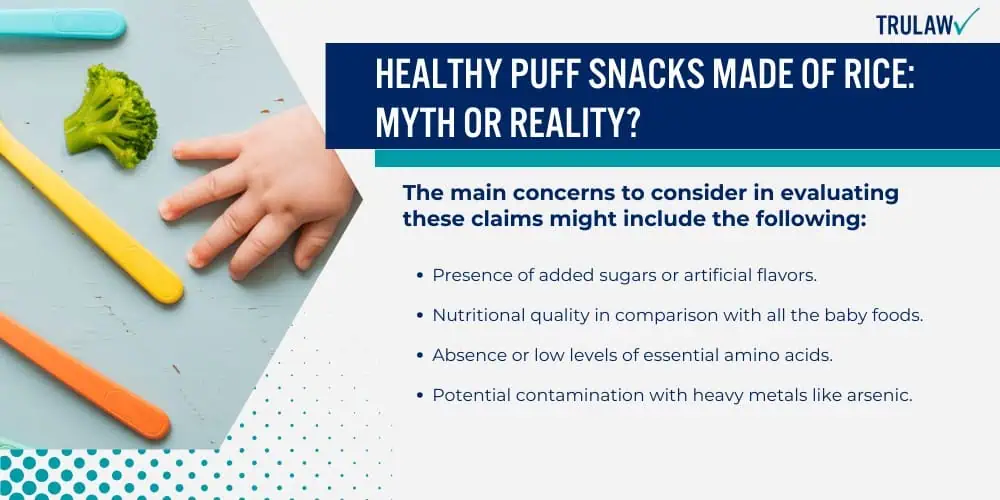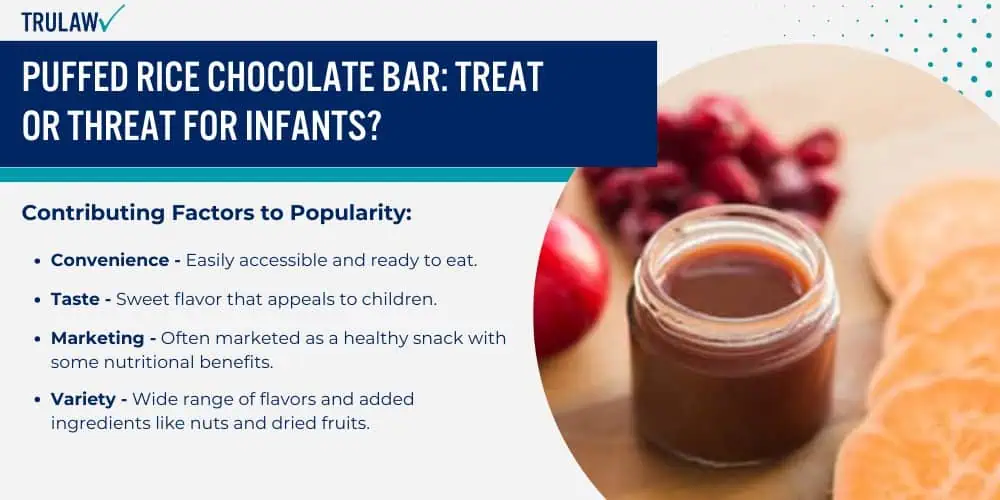Puff snacks made from rice are common in infant diets, but there are significant health risks associated with consuming these products.
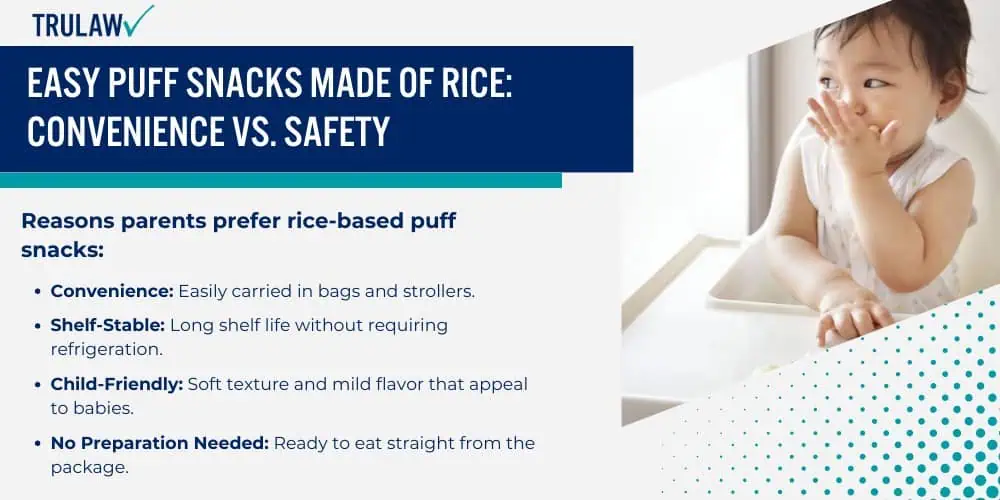
These risks primarily stem from the presence of heavy metals such as arsenic.
Rice-based puff snacks are popular for their convenient texture and appeal to infants.
However, food safety testing has revealed the presence of heavy metals in these products.
Specifically, toxic baby foods containing elements like arsenic, cadmium, lead, and mercury can pose serious health risks to infants.
Appeal of Easy Puff Snacks Made of Rice
Busy parents often choose rice-based puff snacks due to their convenience.
They are portable, do not require refrigeration, and can be quickly given to a hungry child.
Additionally, these snacks’ texture and mild flavor appeal to young children.
Reasons parents prefer rice-based puff snacks:
- Convenience: Easily carried in bags and strollers.
- Shelf-Stable: Long shelf life without requiring refrigeration.
- Child-Friendly: Soft texture and mild flavor that appeal to babies.
- No Preparation Needed: Ready to eat straight from the package.
Parents appreciate the peace of mind these snack foods offer in terms of simplicity and practicality for feeding their babies on the go.
Potential Health Risks Associated with Rice-Based Puff Snacks
The potential health risks of puff snacks made from rice include developmental delays and cognitive impairment.
Exposure to these metals in early life stages can have long-lasting effects.
Concerns over rice-based puff snacks primarily revolve around their nutritional content and potential for contamination.
Rice, a common ingredient in these snacks, may have elevated levels of arsenic, which is concerning for developing children.
The frequent consumption of such products could lead to accumulated exposure over time.
Health risks linked to rice-based puff snacks:
- Arsenic Exposure: Rice may contain arsenic, posing risks over extended consumption.
- Nutritional Quality: These snacks typically offer relatively poor nutritional quality compared to whole foods.
- Additives and Preservatives: Potential presence of artificial ingredients.
- Sugar and Salt Content: Higher than recommended infant levels, leading to poor dietary habits.
While these snacks provide convenience, the potential health risks highlight the importance of carefully considering them in a baby’s diet.
Avoiding excessive dependence on processed snacks can help mitigate these risks.
